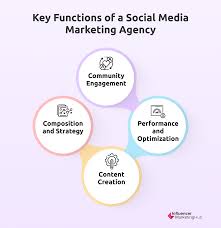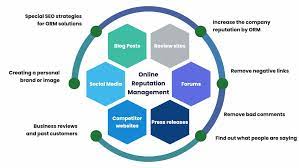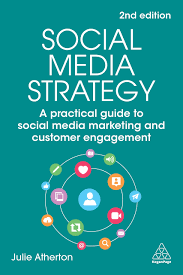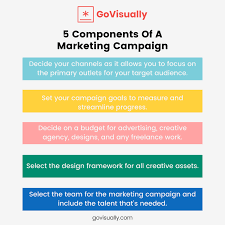Mastering the Art of Social Media Marketing Content Creation in the UK
Social Media Marketing Content Creation
Social media marketing has become an essential tool for businesses to connect with their audience, build brand awareness, and drive engagement. One of the key components of a successful social media strategy is content creation. Creating compelling and relevant content is crucial in capturing the attention of your target audience and driving them to take action.
Here are some tips for creating effective social media marketing content:
Understand Your Audience
Before creating any content, it’s important to have a deep understanding of your target audience. What are their interests, preferences, and pain points? Tailor your content to resonate with your audience and provide value to them.
Choose the Right Platforms
Not all social media platforms are created equal. Choose the platforms that align with your business goals and where your target audience is most active. Different platforms may require different types of content, so adapt your strategy accordingly.
Create Engaging Visuals
Visual content tends to perform better on social media than text-only posts. Use high-quality images, videos, infographics, and other visual elements to grab attention and convey your message effectively.
Be Consistent
Consistency is key in social media marketing. Develop a content calendar and stick to a regular posting schedule. This helps maintain engagement with your audience and establishes credibility for your brand.
Encourage Interaction
Engage with your audience by asking questions, running polls, or encouraging user-generated content. Encouraging interaction can boost engagement levels and foster a sense of community around your brand.
Analyse and Optimise
Monitor the performance of your social media content using analytics tools. Identify what works well and what doesn’t, then optimise your strategy accordingly. Continuous analysis allows you to refine your approach for better results.
In conclusion, social media marketing content creation plays a vital role in the success of any social media strategy. By understanding your audience, choosing the right platforms, creating engaging visuals, maintaining consistency, encouraging interaction, and analysing performance, you can create compelling content that resonates with your audience and drives meaningful results for your business.
9 Essential Tips for Crafting Effective Social Media Marketing Content
- Understand your target audience and tailor content to their preferences.
- Use high-quality visuals such as images and videos to capture attention.
- Create engaging and interactive posts to encourage user interaction.
- Maintain a consistent brand voice and style across all platforms.
- Utilise hashtags effectively to increase visibility and reach a wider audience.
- Monitor trends and stay updated with the latest social media algorithms.
- Experiment with different types of content formats to keep your audience interested.
- Encourage user-generated content to foster a sense of community around your brand.
- Analyse performance metrics regularly to track progress and make data-driven decisions.
Understand your target audience and tailor content to their preferences.
Understanding your target audience is a fundamental aspect of successful social media marketing content creation. By gaining insights into the interests, behaviours, and preferences of your audience, you can create tailored content that resonates with them on a deeper level. This personalised approach not only captures their attention but also establishes a connection that drives engagement and encourages action. By aligning your content with the specific needs and desires of your audience, you can build trust, loyalty, and ultimately achieve your social media marketing goals effectively.
Use high-quality visuals such as images and videos to capture attention.
In the realm of social media marketing content creation, a crucial tip is to utilise high-quality visuals like images and videos to captivate the audience’s attention. Visual content has the power to convey messages effectively, evoke emotions, and leave a lasting impact on viewers. By incorporating visually appealing elements into your social media posts, you can enhance engagement levels, increase brand visibility, and stand out in the crowded digital landscape. Remember, a picture is worth a thousand words – make sure your visuals are not just eye-catching but also relevant to your brand and message to make a lasting impression on your audience.
Create engaging and interactive posts to encourage user interaction.
To enhance user engagement on social media, it is crucial to create captivating and interactive posts that prompt audience interaction. By crafting content that sparks curiosity, encourages feedback, or initiates discussions, businesses can foster a sense of community and strengthen relationships with their followers. Interactive posts such as polls, quizzes, contests, and Q&A sessions not only attract attention but also invite active participation from users, leading to increased brand visibility and loyalty. Embracing this strategy in social media marketing content creation can significantly boost engagement levels and drive meaningful interactions with the target audience.
Maintain a consistent brand voice and style across all platforms.
Maintaining a consistent brand voice and style across all social media platforms is crucial for building brand recognition and trust with your audience. By ensuring that your messaging, tone, and visual elements align with your brand identity, you create a cohesive and memorable experience for your followers. Consistency helps to establish brand authenticity and reliability, making it easier for your audience to connect with and relate to your brand. Whether it’s Facebook, Instagram, Twitter, or any other platform, a unified brand voice reinforces your brand’s values and messaging, ultimately driving engagement and loyalty from your audience.
Utilise hashtags effectively to increase visibility and reach a wider audience.
Utilising hashtags effectively is a powerful strategy in social media marketing content creation. By incorporating relevant and trending hashtags into your posts, you can increase visibility and reach a wider audience. Hashtags categorise content, making it easier for users to discover your posts and engage with your brand. Researching and using popular hashtags in your industry can help amplify your message and attract new followers who are interested in the topics you are discussing. When used strategically, hashtags can significantly enhance the reach and impact of your social media marketing efforts.
Monitor trends and stay updated with the latest social media algorithms.
Monitoring trends and staying updated with the latest social media algorithms is crucial for effective social media marketing content creation. By keeping a close eye on emerging trends and understanding how platforms’ algorithms work, businesses can adapt their content strategy to maximise visibility and engagement. Being aware of algorithm changes allows brands to stay ahead of the curve, ensuring that their content remains relevant and reaches the right audience at the right time. This proactive approach not only helps in maintaining a competitive edge but also enables businesses to leverage new opportunities and optimise their social media presence for better results.
Experiment with different types of content formats to keep your audience interested.
To keep your audience engaged and interested, it is essential to experiment with various types of content formats in your social media marketing strategy. By diversifying your content, such as incorporating videos, infographics, live streams, and interactive posts, you can cater to different preferences and capture the attention of a wider audience. This approach not only adds variety to your feed but also allows you to discover which formats resonate best with your audience, enabling you to refine your content strategy for optimal engagement and impact.
Encourage user-generated content to foster a sense of community around your brand.
Encouraging user-generated content is a powerful strategy in social media marketing content creation as it helps foster a sense of community around your brand. By inviting your audience to participate and share their own content related to your brand, you not only increase engagement but also build a stronger connection with your followers. User-generated content showcases authentic experiences and testimonials from real customers, creating a more relatable and trustworthy image for your brand. This approach not only boosts brand loyalty but also turns your audience into active brand advocates, further expanding your reach and influence within the online community.
Analyse performance metrics regularly to track progress and make data-driven decisions.
Regularly analysing performance metrics is a crucial aspect of social media marketing content creation. By tracking key metrics such as engagement rates, click-through rates, and audience demographics, businesses can gain valuable insights into the effectiveness of their content strategy. This data-driven approach enables informed decision-making, allowing businesses to identify what resonates with their audience and make adjustments to optimise future content for better results. By leveraging performance metrics, businesses can refine their social media marketing efforts and achieve greater success in reaching and engaging their target audience.










